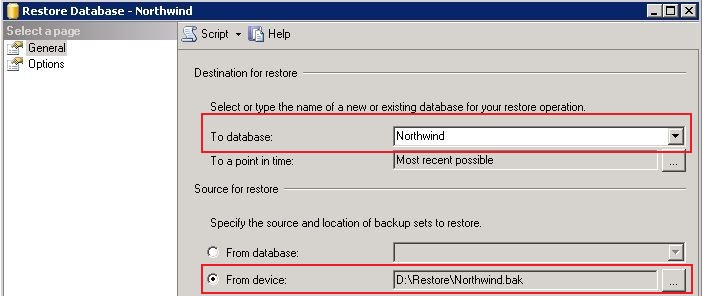Difference between revisions of "RecoverMSSQL"
From Tranzman Documentation
| Line 8: | Line 8: | ||
==='''Step 2'''=== | ==='''Step 2'''=== | ||
| − | + | Log in to MS SQL Management Studio, right click on Databases and choose '''Restore Database'''. | |
[[File:MSSQL_Restore_DB_01.jpg]] | [[File:MSSQL_Restore_DB_01.jpg]] | ||
| Line 14: | Line 14: | ||
==='''Step 3'''=== | ==='''Step 3'''=== | ||
| − | For the source select '''From Device''' | + | Select desired database form the drop down menu as the destination. For the source select '''From Device''' and point it to the '''BAK''' file on the temporary location. |
| − | ==='''Step | + | ==='''Step 4'''=== |
Select '''OK''' and this will restore the contents from the BAK file to the desired Database. | Select '''OK''' and this will restore the contents from the BAK file to the desired Database. | ||
Revision as of 11:51, 18 September 2018
The following method has been tested with the versions of Microsoft SQL 2008,2012 & 2014 for recovering the Database Files and getting the server back up and running.
Step 1
Extract all database files to a temporary location on the client SQL Server as a ".BAK" type.
- i.e. "C:\Temp\New_DB.BAK"
Step 2
Log in to MS SQL Management Studio, right click on Databases and choose Restore Database.
Step 3
Select desired database form the drop down menu as the destination. For the source select From Device and point it to the BAK file on the temporary location.
Step 4
Select OK and this will restore the contents from the BAK file to the desired Database.
Use this link to go back to the main recoverydocs Page.
